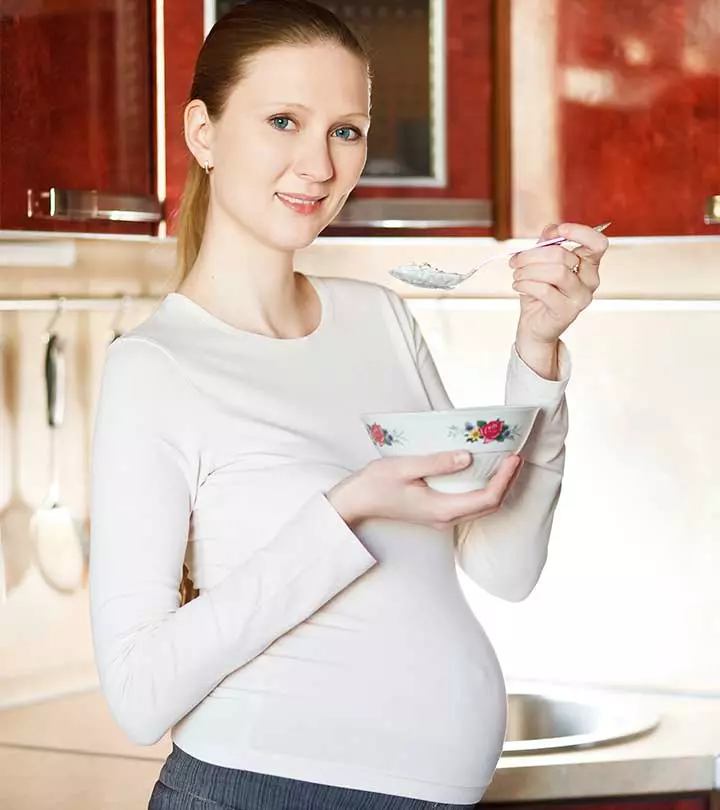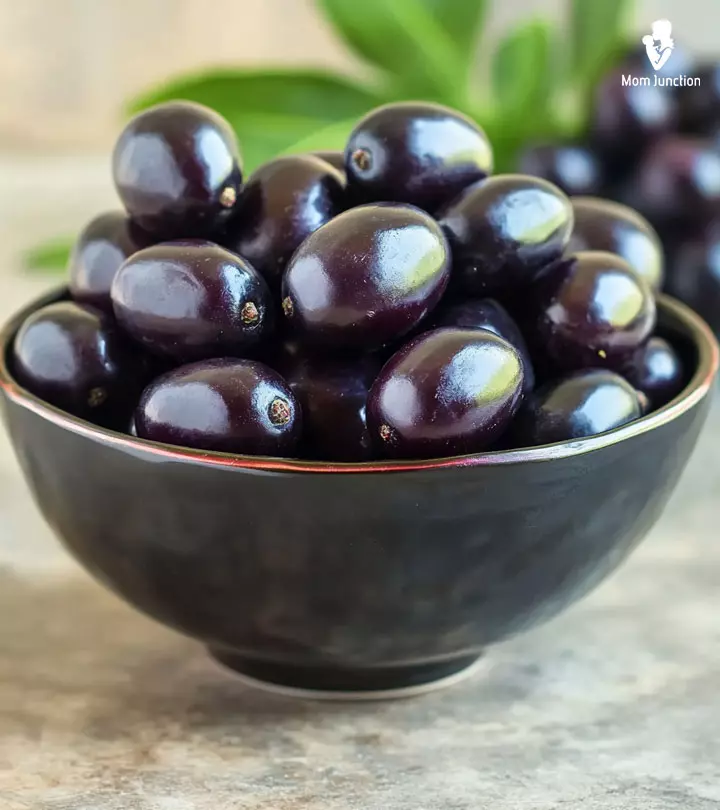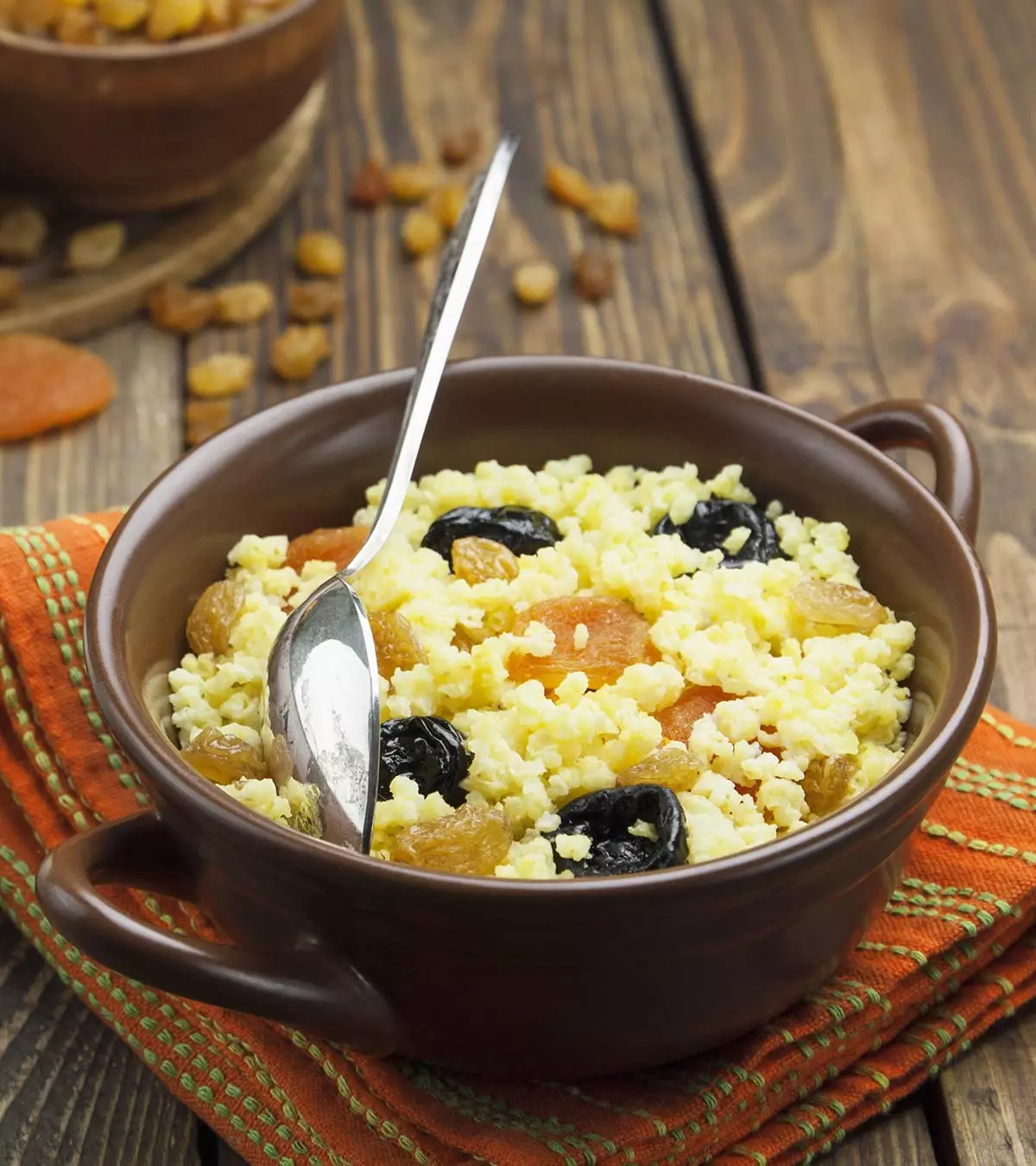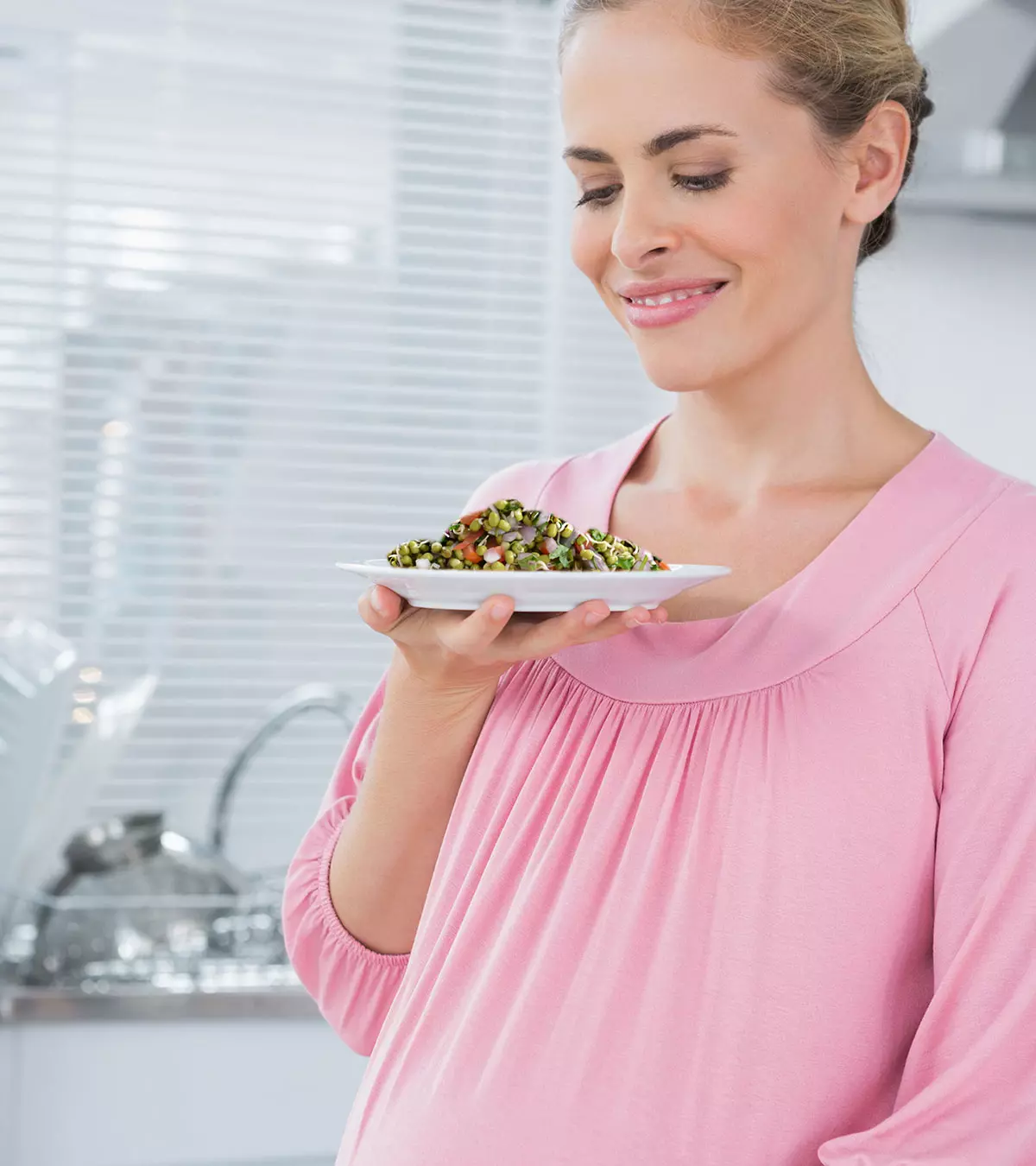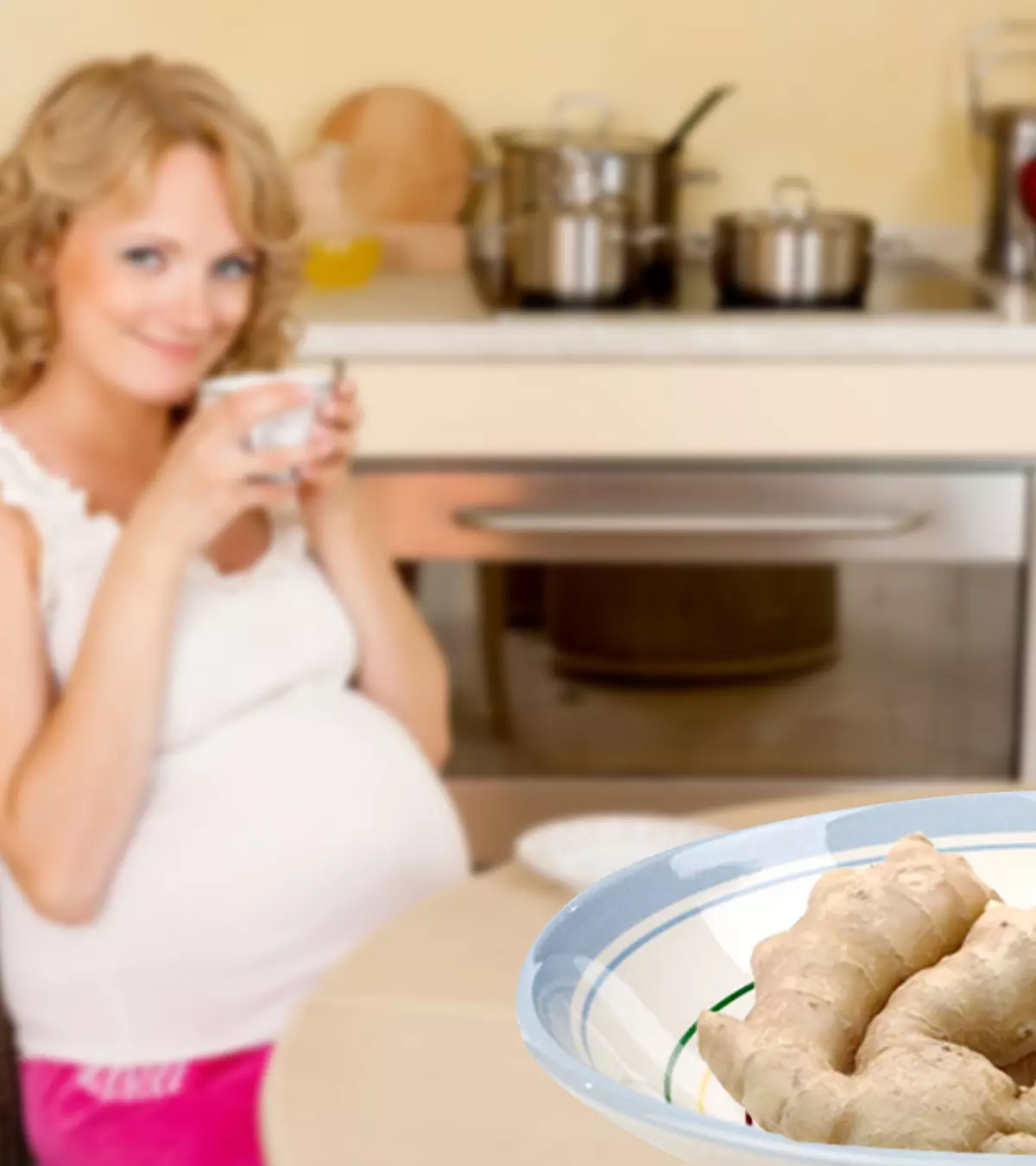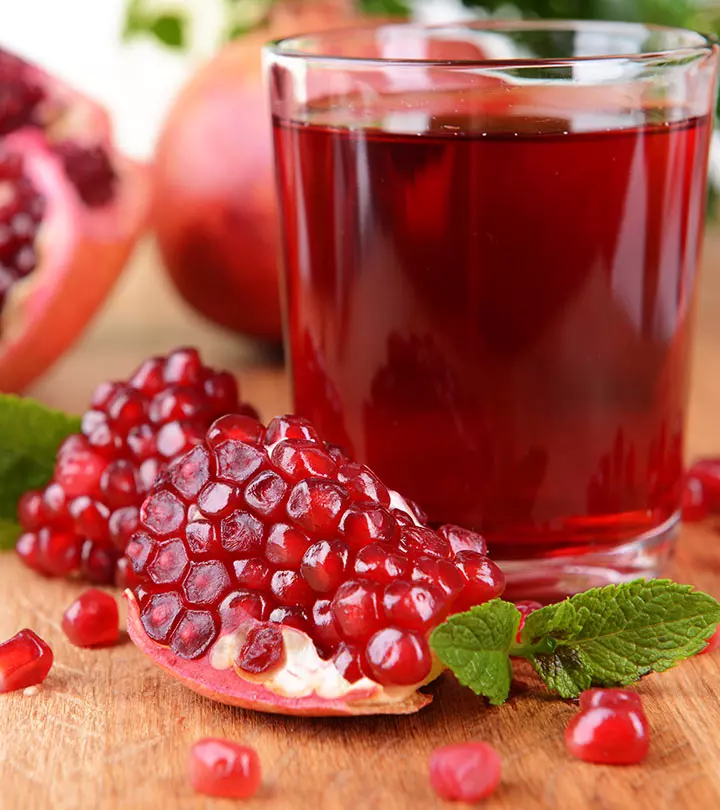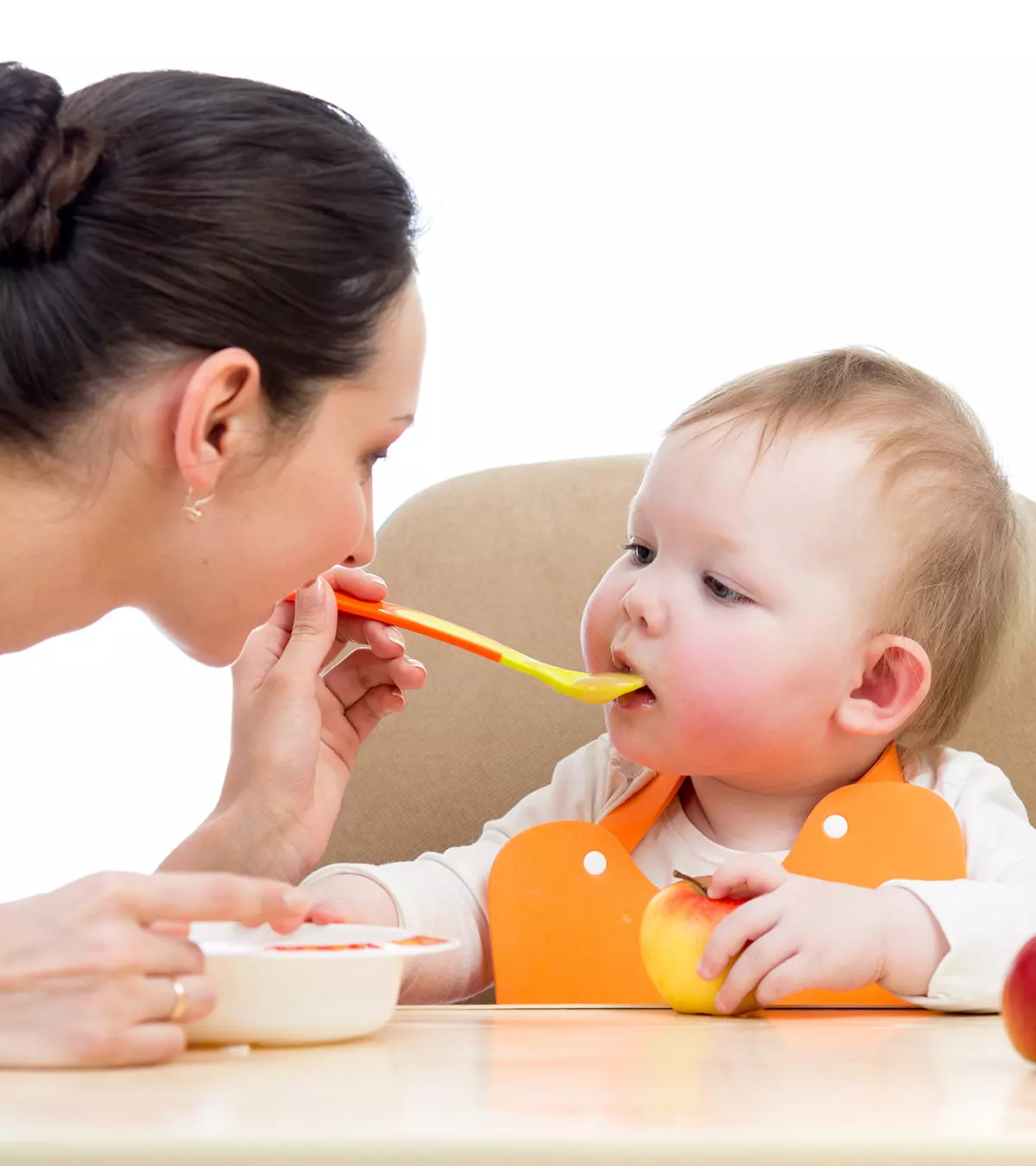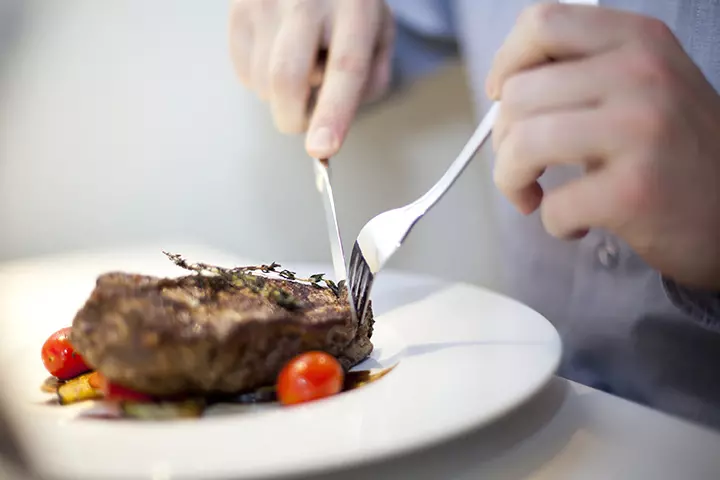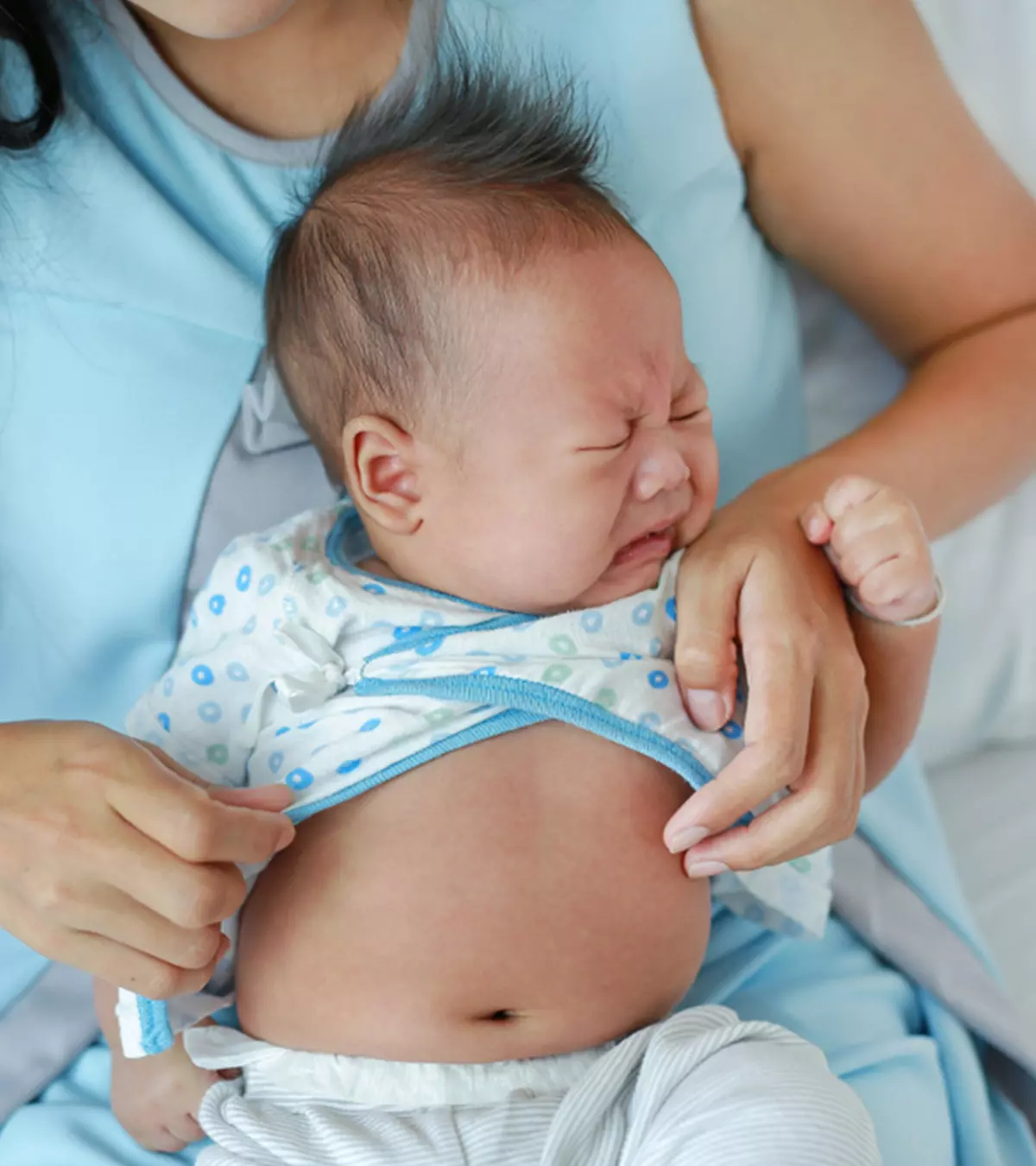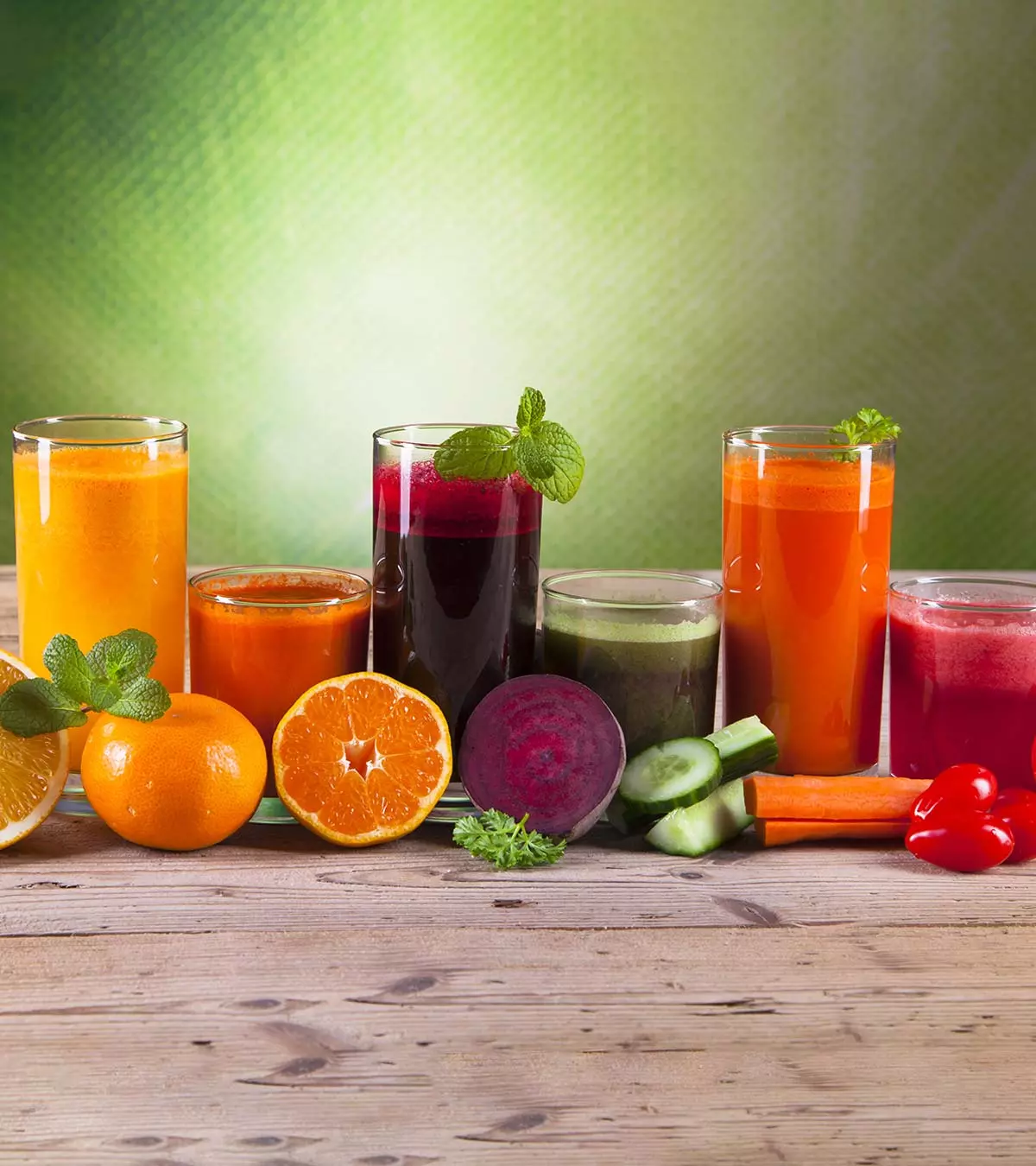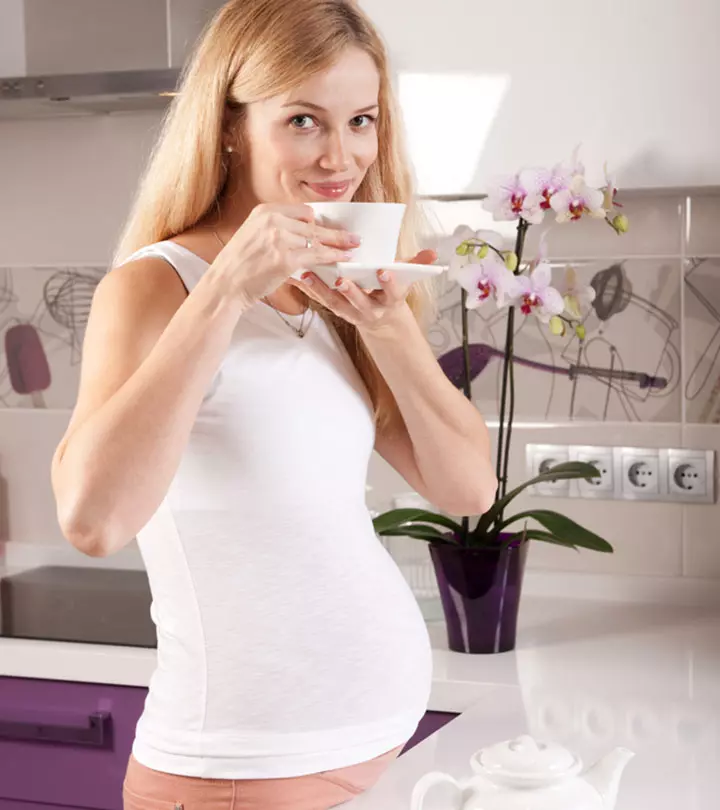
Image: Shutterstock
Caffeine is a compound commonly associated with coffee. However, it is also present in tea. It is one of the reasons why you may find tea refreshing. However, if you are a tea drinker, you may consider switching to decaf tea during pregnancy.

Decaf tea has the same pleasant flavor and aroma as standard tea but without caffeine. Decaf tea could be an option during pregnancy due to the potential side effects of caffeine on the mother and the baby in the womb. You need not completely avoid caffeine, and moderate quantities are usually safe to consume during pregnancy. However, if you are an avid tea drinker and need several cups a day, decaf tea could be an ideal choice since it can help you stay clear from excess caffeine consumption.
Read on to learn about decaf tea, its safety, and how much decaf tea is safe to consume during pregnancy.
Key Pointers
- Bacon should not be given to babies below 12 months of age.
- Bacon is a good source of protein and micronutrients in portions.
- Overfeeding bacon to babies may cause weight gain and kidney problems.
- Chicken and fish are better alternatives to bacon for babies.
What is Decaf Tea
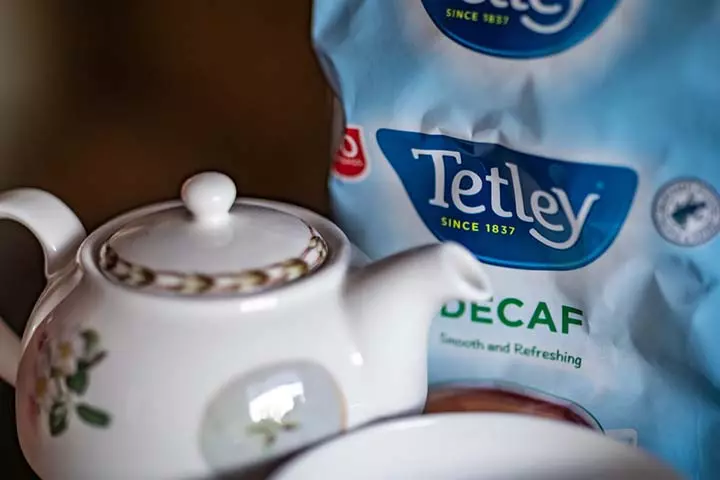
Decaf is simply your caffeine source, tea or coffee, minus the caffeine. When you opt for a decaf tea, the flavoring elements remain intact while the caffeine is either removed or reduced significantly (1). It means that by opting for this safe beverage, you don’t compromise on taste while removing caffeine that may have negative effects on your pregnancy. Hence, for those concerned about drinking tea during pregnancy, decaf is a reassuring alternative.
 Quick fact
Quick factWhy Is Too Much Caffeine Bad During Pregnancy?

Including high levels of caffeine as part of maternal nutrition can have negative effects on your baby. Common problems, including the low birth weight, preterm labor are often linked to high caffeine consumption during pregnancy (2). A cohort study conducted by researchers from multiple institutions revealed that infants who were born to women with high caffeine levels were about three ounces lighter, 1.7 inches shorter, and had a head circumference that was 0.11 inches smaller than the infants born to women with minimal or no traces of caffeine in their blood.
Here are a few other risks you expose yourself and your baby to when consuming excessive caffeine (2):
- Excess caffeine can harm your baby’s development during pregnancy.
- Caffeine acts on your central nervous system by acting as an instant stimulant. This, in turn, can increase your blood pressure and hence your heart rate.
- It can lead to severe gastritis.
- Health risks like miscarriages are also found to have an increased rate due to high caffeine consumption.
 Point to consider
Point to considerIs Decaf Tea Safe During Pregnancy?
Yes, decaf tea during pregnancy is absolutely safe! It is the best way you can enjoy your share of daily caffeine but in a controlled and healthy way (3). Decaf tea also provides some health advantages, such as a gentle energy boost and improved hydration. It is also a source of antioxidants that benefit general health (1).
Will I Have To Give Up Caffeine Completely?
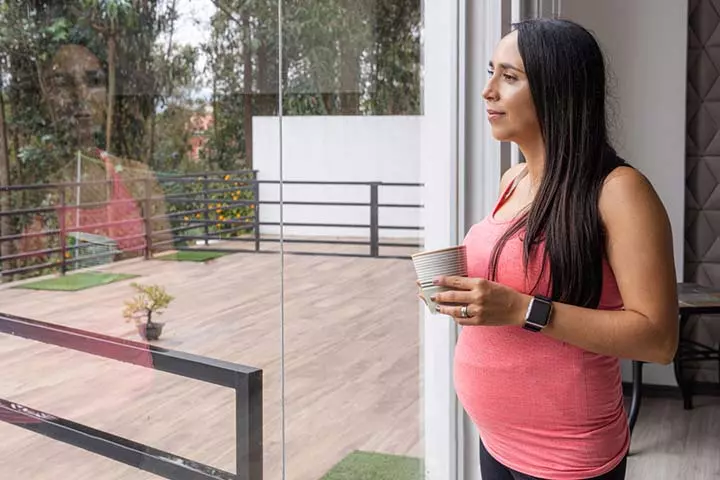
No. However, it is best to avoid it if you can. If you cannot, you still can enjoy your tea or coffee during pregnancy, but in moderation (2).
How Much Decaf Tea Is Safe During Pregnancy?

Your total caffeine consumption in a day should not exceed 200 mg (2). It roughly is around two regular mugs of tea or coffee. A cup of decaf contains about 2 milligrams of caffeine (3). Adjusting your caffeine intake is also an essential part of your prenatal care.
It is not just your cup of coffee or tea that contains caffeine. Here are other some other drinks and foods that contain caffeine (2):

- Chocolate (both milk and plain)
- Cola
- Non-alcoholic beverages such as energy drinks
- Bottled iced tea
- Instant coffee
- Brewed coffee
- Brewed tea
So remember that your total caffeine intake should not exceed 200 mg in a day and that limit must include all caffeine foods and drinks you consume through the day.
Frequently Asked Questions
1. Can decaf tea cause miscarriage?
Since decaffeinated tea contains very little caffeine, it is extremely unlikely to cause a miscarriage (4).
2. Does decaf tea affect the fetus?
The excess caffeine content in tea and coffee may adversely affect the fetus, causing restricted fetal development and growth or congenital abnormalities (5). However, decaffeinated tea only contains 0.4mg of caffeine, making it safe to drink while pregnant (4).
3. Can decaf tea help with morning sickness during pregnancy?
While no specific decaf tea has been proven to alleviate morning sickness during pregnancy, numerous herbal teas, like peppermint tea, may help ease morning sickness symptoms in pregnant women (7). Talk to your healthcare provider before consuming herbal teas during pregnancy to ensure safety.
4. Can decaf tea affect the quality of breast milk?
Decaf tea is unlikely to impair breast milk quality if consumed in moderation. However, it is always better to consult a healthcare expert for personalized guidance (8).
5. Can decaf tea affect the baby’s sleep patterns in the womb?
While caffeine can disrupt a baby’s sleep patterns and movement in the later stages of pregnancy, decaf tea has very little caffeine, which is unlikely to affect the baby’s sleep patterns (2).
Decaf tea during pregnancy is a great alternative as it protects both the mother and the baby from the detrimental effects of caffeine while still retaining the flavorful aspects of caffeine. However, switching to decaf should be done gradually since sudden caffeine withdrawal can cause headaches. Depending on how much caffeine you consume in a day, you can adjust your decaf daily intake. You may also try substituting unsweetened beverages, healthy herbal tonics, fruit infusions, and fruit juices for caffeinated beverages such as energy drinks, brewed and instant coffee, tea, etc.
Infographic: Why Overconsumption Of Caffeine Is Bad For Pregnant Women
Caffeine is a stimulant that most people love. However, this stimulant can also raise blood pressure. So pregnant women should try to restrict their daily consumption of caffeine to 200mg. Read this infographic to find out how excess caffeine consumption can harm expectant mothers.
Some thing wrong with infographic shortcode. please verify shortcode syntaxIllustration: Is It Safe To Drink Decaf Tea During Pregnancy?

Image: Stable Diffusion/MomJunction Design Team
References
- Tea.
https://nutritionsource.hsph.harvard.edu/food-features/tea/ - Caffeine During Pregnancy.
https://americanpregnancy.org/healthy-pregnancy/pregnancy-health-wellness/caffeine-intake-during-pregnancy/ - All About Decaffeinated Coffee.
https://www.aboutcoffee.org/beans/decaf-coffee/ - Herbal Tea and Pregnancy.
https://americanpregnancy.org/healthy-pregnancy/is-it-safe/herbal-tea/ - Sara Morgan et al.; (2013); Is caffeine consumption safe during pregnancy?
https://www.ncbi.nlm.nih.gov/pmc/articles/PMC3625078/ - Sara Morgan et al.; (2013); Is caffeine consumption safe during pregnancy?
https://www.ncbi.nlm.nih.gov/pmc/articles/PMC3625078/ - Terzioglu Bebitoglu Berna.; (2025); Frequently Used Herbal Teas During Pregnancy – Short Update.
https://www.ncbi.nlm.nih.gov/pmc/articles/PMC7384490/ - Caffeine; National Library of Medicine
https://www.ncbi.nlm.nih.gov/books/NBK501467/
Community Experiences
Join the conversation and become a part of our nurturing community! Share your stories, experiences, and insights to connect with fellow parents.
Read full bio of Dr. Meenu Vashisht Ahuja
Read full bio of Ria Saha
Read full bio of Swati Patwal
Read full bio of Lorraine Teron








